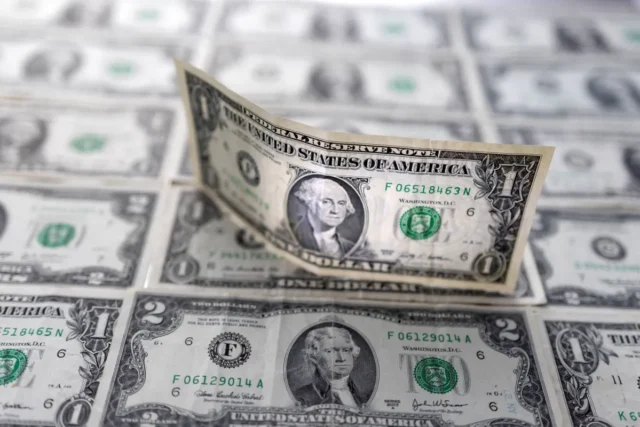The dollar fell against most large currencies on Friday, with growing pressure on countries, in order to conclude commercial transactions with the United States, after President Donald Trump adopted a huge bill, which includes a decrease in taxes and a significant increase in expenses, against the background of the escalation of the stability of the financial situation in the United States.
On Thursday, the American currency benefited from reliable data on the labor market, which developed expectations at the beginning of the “federal reserve system” to reduce interest rates. Nevertheless, the dollar index is sent on the recording of the second weekly losses in a row against the backdrop of commercial tension and the approaching date of the introduction of complex customs duties on July 9, long -term states are extended with Washington, such as Japan, according to Reuters.
The House of US representatives, in which the Republicans dominated, approved the bill on Trump’s tax and the costs of a small difference, and it is expected that the president will officially sign it on Friday. Official estimates expected the project to add $ 3.4 trillion to public debt, which is currently 36.2 trillion dollars.
In the light of the closure of the American markets for the festival of independence, the attention of the markets went to a new policy of customs duties, which, according to Trump, will be determined by messages sent by countries as of Friday, instead of concluding complex bilateral agreements.
“The demand for the dollar has decreased from the concern of expanding the American shortage and reducing confidence in American debts,” noted that escalation of commercial tension can undermine economic growth and limit the “federal” ability to maneuver, especially in the light of escalation of inflation.
The dollar index has recorded its worst annual results since 1973, and anxiety has increased from the consequences of the “random” customs policy of Trump, which led to a decrease in the dollar to the lowest levels over the euro and pounds sterling during the week.
The dollar index fell by 0.1 percent to 96.96, while the euro increased by 0.1 percent to $ 1.1773, on the way to weekly growth by 0.4 percent. Japanese yen increased by 0.4 percent to 144.375 for the dollar, and the Swiss franc grew by 0.2 percent to 0.7939.
For its part, the European Commission seeks to reach the initial agreement with Washington until the deadline. The reports say that Japan will send its main trading negotiator to the United States this week, trying to avoid upcoming fees.
Investors expressed relative satisfaction after the American vacancies report, which showed an increase in non -agricultural jobs by 147,000 in June, exceeding 110,000 expectations. “Despite the slowdown in the decrease in the labor market, the lack of sudden collapse discovers,” Suzuki said, the main currency strategy in SBC, adding that the continuing situation in negotiations on customs duties can push the dollar to further reduction, in exchange for the growth of yen.
According to the Chicago Stock Exchange, markets are proud to have the possibility of “federal” interest rates that are not changed at the next meeting by 95.3 percent, compared with 76.2 percent during the second of July, while it is expected that a decrease in interest begins in September or after.









